The legacy of General Qassem Soleimani
Assassinated in 2020, Qassem Soleimani Known for piety and courage will live on forever in the hearts and minds of the oppressed and downtrodden for whom he gave all.
What triggered Soleimani’s resistance-related legacy was the 8-year Iraq-Iran war of the 1980s, which was supported by America and an American-led world. To him, enough was enough. No more battering from America and supplication to its lackeys.
The Man and his Mission
To this end, Soleimani set his sights on the day when the United States of America is expelled from the region, eradicating terror groups created by the US.
Ironically, Soleimani’s death was no less effective in weakening the American position and grip in West Asia than his life had been. Soleimani was assassinated together with 9 others including Abu Mahdi al-Muhandis, the deputy head of Hashd Al-Shaabi, Iraq’s Popular Mobilization Forces (PMF).
The incident 2 years ago, happened as the Iranian general was visiting Iraq at the invitation of Iraq’s leader to deliver an Iranian reply to a Saudi message through Iraq.
The US broke all manner of laws and agreements by this act of assassination. And just two days later on January 5, Iraq's parliament voted to expel US military forces from Iraq, with parliamentarians chanting “Yes, Yes Soleimani”.
We believe that although martyrdom indeed means a great person is gone, the effects that they have on society and the environment around them are positive. The examples are Ashura and Karbala when they thought that with the martyrdom of Imam Hussein and his companions and imprisonment of their families everything, including Islam was over. But that was the very time when Islam was revived.
Maybe if that hadn’t happened, Islam would perish, if Imam Hussein was to surrender, Islam would be over. Many thought that the martyrdom of Qassem Soleimani would mean the end of many things. The Americans believe they would consolidate their power in Iraq. They thought they would be strengthened in other countries and there would be no other obstacle left for them. But the opposite happened to them.
After the martyrdom of Haj Qassem, we are witnessing a series of events. The US decided to leave Iraq, and the resistance persisted, which now means Americans have to leave. They are announcing that themselves. Last week, they said they were leaving the al-Harir and Ain al-Asad military bases. The US is desperate and begging to stay. Following the martyrdom of Qassem Soleimani, the US withdrew from Afghanistan and suffered such humiliation that it couldn’t leave Afghanistan at lower costs.
Brig. Gen. Hossein Akbari, Cultural Deputy, Quds Force
On 8th January a day after his funeral procession, Iran retaliated with a major missile attack on the Ain-al-Assad and another Iraqi base where US troops were stationed. It was called “Operation Martyr Soleimani”. Iran’s showering the US Ein al-Asad airbase in Iraq’s western governorate of al-Anbar with tens of ground-to-ground missiles, left more than 100 US service members with traumatic brain injury (TBI).
The assassination was ordered by former US President Trump. He had reportedly mulled over the idea of removing Soleimani, simply over a game of golf, having been motivated by his foreign Secretary Pompeo’s unbacked speculations; speculations of Soleimani being a danger to American lives.
Following its retaliatory response, Iran announced the new strategy of continuing what General Soleimani had assiduously started: expulsion of the US forces from the region; that would be the real revenge.
Some two years later, in a statement on the second anniversary of the Soleimani assassination, this is what the Iranian Foreign Ministry said: “the prompt and effective action of the Armed Forces of the Islamic Republic of Iran in slapping the American troops stationed at the Ain al-Assad base in Iraq in the face, along with the spiritual effects of the blood of Iranian and Iraqi martyrs, upset the equations and brought about the failure of US regional strategy. The US fleeing from Afghanistan, the beginning of the process of withdrawal from Iraq and the change in the strategy of the US military presence in the geostrategic region of Persian Gulf showcase a small part of such impacts and consequences.”
It added, “Undoubtedly, the criminal act of the United States in martyring general Soleimani is a clear manifestation of a "terrorist attack" that was orchestrated and carried out in an organized manner by the then US government for which the White House is now responsible.”
Now Iran and Iraq have formed a joint judicial committee to bring to justice the perpetrators behind the assassination.
Countries other than the US were also involved in the act of state terrorism according to the secretary of Iranian Judiciary's Human Rights Council Kazem Gharibabadi.
Mr Shirazi was a brother-in-arms to Qassem Soleimani.
The president of the United States personally decided to assassinate him. Trump was Haj Qassim’s opponent. The world-renowned commander was more popular among the armed forces than any other commander. He was more popular than any political figure in Iran, except for the Leader of the Islamic Revolution.
It would be very natural for such a person to lose all humility. But when his mother passed away - she passed away before his father, I was there for her funeral in Qanat Malek. They were setting up security gates to check people who wanted to attend the funeral. When Hajj Qassem realized that, he came to the gates, saying that people who’re there to give their condolences shouldn’t get into trouble and removed all the gates. He did the same in Kerman and Tehran for his father’s funeral. People would go visit him, especially when he went to Kerman.
The people of Kerman knew him for 50 years. He was always tired whenever he returned from Kerman. He’d say people would go to him with their problems until late at night, if he didn’t help them, who else would? He would use his influences in the Leader’s office, the executive, the legislature, the judiciary, and elsewhere, and even sometimes followed up on the smallest of issues. He’d reply to all people’s letters, saying he had to respond to those who’ve written to him.
Hujjat al-Islam Ali Shirazi, Deputy Head the Ideological & Political Office, Ministry of Defense
Soleimani was a youngster with no more than a high school diploma at the time of the Iraq-Iran war. But he joined the frontlines and rose quickly in the ranks. In 1998 he became head of the Quds Force extraterritorial operations.
Haj Qassem was a military training instructor when he joined the IRGC. Later, he was sent to the front in Operation Samen al-Aemeh and Tariq al-Quds. He was a battalion member and not a commander yet. Before Operation Fath al-Mobin, he was chosen as the commander of the Saar Allah Brigade. He also participated in Operation Beit al-Muqadas in 1982.
He then became the commander of the Saar Allah Brigade which was expanded after the war ended, turning into the Seventh Division of Saheb Azaman. Back then, I was in charge of the Division’s PR. I was the Deputy of the cultural affairs of the Seventh Division. After the war ended, Qassem Soleimani came to Kerman and stayed there. He then became the commander of the Quds Forces of the IRGC.
In 1998, he fought counter-revolution and drug smugglers in Iran’s South East. When the region was safe, he wrote a letter to the Leader of the Islamic Revolution, saying his mission was accomplished. The Leader then chose him as the Commander of the Quds Force. As time elapsed, he was shining more than ever. His scope of activities in the Quds Force was the reason for that.
Hujjat al-Islam Ali Shirazi, Deputy Head the Ideological & Political Office, Ministry of Defense
General Soleimani’s popularity was basically down to his personality: his selfless courage on the battlefront, as well as his tactical military mind applied to complex geostrategic situations in the field, especially in fighting the nightmare terror group Daesh or ISIS.
He said he’d sacrifice his life for the people thousands of times. He wasn’t joking. We saw him in action in Syria, where he’d personally go to where the operation had to take place for reconnaissance. Sometimes the intelligence unit has to approach the enemy’s line, infiltrate and do the recon work.
Hajj Qassem would personally get there to ensure he was protecting the lives of the youth whose lives their parents entrusted to him. He would go places he didn’t allow the commanders to go. I witnessed that several times in Iraq and Syria.
The commanders would complain that they weren’t allowed to go. He put his life on the line so his commanders and troops stay safe. He had a loving attitude toward his forces and the people. It’s only natural for the people to love him back. His martyrdom hurt the whole country.
Hujjat al-Islam Ali Shirazi, Deputy Head the Ideological & Political Office, Ministry of Defense
Iranian and Iranian-backed forces became major combatants against ISIS or Daesh, after that group took over roughly a third of Iraq in 2014. The conflict went on till 2017.
Soleimani was an egalitarian who avoided superior-vs-inferior relationships at work. But he was a natural-born leader, deducing from all one reads and hears. He was always in to fight for a cause, and grouped people to go along with him. He was instrumental in preventing Iraq from completely falling to ISIS, fighting with his Qods force and Iranian-backed Iraqi militia forces and regular forces.
General Mojahedi was brother-in-arms to Haj Qasem. He draws parallels on tactics he’s seen his fellow-general apply. We got to meet him at Val-Fajr, an IRGC housing complex.
We need to define strategic depth for ourselves and be sure from outside the borders that we will act immediately if someone makes a move. Well, in the last few years, the Americans came to the region and overthrew the governments in Afghanistan and Iraq, and stayed there.
All our officials and people know that they weren’t only there to occupy the two countries, they were there to harass us and check our moves. Their next move would be against us. Qassem Soleimani took action against that. He mobilized people with a Jihadi attitude and prepared and organized them to defend the country. He put people within six countries in line to fight.
Brig. Gen. Mahmoud Amir Mojahedi, General Soleimani’s Comrade
Kurdish leaders have been cited that, when Daesh took Mosul [in 2014] and was about to head for Erbil, there was no American or Turkish support in sight for the Kurdish forces.
But in just 2 hours, Soleimani arrived in Erbil with two large planes of military supplies. His presence alone was a battle-shipment; he got to shore up the front-line Peshmerga soldiers, to protect Erbil and Kirkuk from the Daesh onslaught. And protected they were
Haj Qassem was in contact with all the fighters in the world for 22 years. He was in touch with all the clerics of the world. A character like Haj Qassem doesn’t make empty swears. In a speech in 2010 at the Khanuk Martyrs' Congress, he said, "By God, I know all the Shiite clergy. I had a meeting with all of them.” He affected them. His words were influential. You see, some warring parties in the region were friendly to Qassem Soleimani and would listen to him. He would bring them to Iran or go to their respective countries to hold meetings. Naturally, a 40-year-old friendship would link them all together. In critical times in Iraq, you could see that everyone showed up and was present on the field.
Hujjat al-Islam Ali Shirazi, Deputy Head the Ideological & Political Office, Ministry of Defense
Also in the south of Iraq, where that country’s forces had collapsed with Daesh at the gates in Baghdad and Najaf, Soleimani organized Shia militias with a fatwa from Ayatollah Sistani, and conducted his command to the effect needed in pushing back Daesh. And pushed back Daesh was.
He believed that Iranians are Shiite Muslims and believed in the Islamic Revolution and the Islamic figures before taking any political beliefs and belonging to any camps. He believed that the inherent opportunities of the Iranian people’s traditional beliefs shouldn’t be sacrificed for the political matters that aren’t that relevant anyway as they’re limited to the times before elections, after which everything goes back to where it was. In practice, there’s no party system by that specific definition here, as both political camps believe in the Islamic figures and the fight against Israel. Their commonalities are much more than their differences. Their differences mostly lie in who takes power and wins the elections than in core issues.
Brig. Gen. Hossein Akbari, Cultural Deputy, Quds Force
Soleimani was the military genius who shattered the Israeli image of invincibility That happened during the 33-day-long War of Tammuz in 2006 between the Lebanese Resistance Movement, Hezbollah, and the Zionist entity. The war was part of George W. Bush’s plan to destroy the resistance in Palestine and Lebanon, and topple the government in Syria after having invaded Afghanistan and Iraq. It was all part of a broader plan intended to finally isolate and encircle Iran. Who went to Beirut in the early days of the Israeli attack on Lebanon was Qassem Soleimani. He did so to organize the resistance forces and coordinate combat operations.
Hajj Qassim accomplished some fundamental work in his lifetime. He strived to make the resistance self-sufficient, meaning that everyone would achieve an innate ability based on their specific geographical conditions. He didn’t need anyone to assist him or send him equipment.
The second issue was that he believed if the resistance had popular support, it would succeed or at least be on the course of success. His reliance on the people as an effective component of the indicators of power in my opinion was the second important thing he’s done.
His third contribution was that the resistance can stand against the enemy and win in an asymmetric war. We saw that in the 33-day war, the War on Gaza, the occupation of Iraq and Afghanistan, and others. We saw that whenever the resistance had roots in the people, the United States suffered defeats.
Brig. Gen. Hossein Akbari, Cultural Deputy, Quds Force
Thanks to Soleimani and the troops he commanded or joined forces with, Daesh was defeated in yes Iraq AND [most] parts of Syria.
Hajj Qassim tried to create a regional unity between the resistance forces with his special worldview. During the Syrian conflict, fighters from different regions, Hezbollah, Iraq, Fatemioun, Zeinabioun, and others came to help.
The support isn’t mere armaments and weaponry and technology, but the whole Muslim community comes to the help.
Such comprehensive support strengthens the resistance and weakens the enemy.
Brig. Gen. Hossein Akbari, Cultural Deputy, Quds Force
Without strategy and pragmatism a fight against the likes of Daesh would have been futile. Fighting Daesh has several dimensions, such as being on the front lines with Iraqi and Syrian fighters, regular and accurate command in the fight against Daesh, dealing with foreign powers and good and coordinated cooperation with Iraqi, Syrian or Russian commanders in the fight against Daesh, and foiling US plans In transferring Daesh forces to operational areas by identifying front lines.
This makes it a valid point that the US must have assassinated Soleimani and company when it did, mostly just as a distraction from Donald Trump’s impeachment by Senate.
On the life and legacy of Haj Qasem, here’s what our guest said:
In my opinion, Qassim Soleimani’s military life is divided into three historical periods. The first was during the Iran-Iraq war. The second was his fight against counter-revolution and traffickers in Iran’s South East. The most important period of his life was when he entered the field of resistance.
Brig. Gen. Hossein Akbari, Cultural Deputy, Quds Force
Well, as you might know, the South East of the country was an unsafe place, even before the victory of the Islamic Revolution. There are villages scattered across the region located far from each other. They have considerable distances from the cities too. That’s why there wasn't a coherent rule over the villages and regions. The place used to be a hotbed of counter-revolutionaries and drug traffickers that would spread opioids across the country, making it unsafe. The former regime couldn’t establish security there. Immediately after the war ended and the UN resolution was accepted, he took up responsibilities in the Quds force and continued relying on the people there too. He knew the ethnicities in every region better than they knew themselves. He said he knew what their problems were. He told those who were creating instability that he knew their problems were employment, livelihood, and cultural issues. He took the initiative to improve the situation there. He revived agricultural lands in the area and dug wells. They laid down their weapons and became sworn allies of the system. They turned into driving forces of the economy.
Brig. Gen. Mahmoud Amir Mojahedi, General Soleimani’s Comrade
Such is the legacy of a man who was present in all fronts. He was present for two thirds of his 62 years on this earth, until a single instant and a US drone-strike outside a Baghdad airport, targeting his car.
His funeral matched his legacy. His casket together with his companions’ toured Baghdad before takeoff for Iran. And in Iran it went from Ahvaz to Tehran, Qom and Mashad before being laid to rest in Kerman, where he grew up. Processions were in their millions and were not limited to Iran.
One of the most prominent facts is that Martyr Soleimani turned into a role model. Today, many youths in the Islamic world, especially in the region, have a thirst for heroes like Martyr Soleimani.
The more is said about Soleimani, the more thirsty and interested they will become in the presence of such heroes in their own countries.
Today in our region, Soleimani is a symbol of hope, self-confidence, and bravery
Ayatollah Seyyed Ali Khamenei, Leader of the Islamic Revolution
Hackers break into Israeli military’s computers, access trove of documents
Tulkarm Brigade commander killed by Israeli forces in raid on refugee camp
Pro-Zionist media desperately trying to turn Israeli defeat into victory: Iran
VIDEO | Press TV's news headlines
Iran censures US veto of Palestinian request for full UN membership
Over 14,000 kids killed in Israel’s war on Gaza: UNICEF
VIDEO | Iran’s National Army Day marked at the Iranian embassy in Moscow
VIDEO | Iranian culture fosters further development, understanding in SA


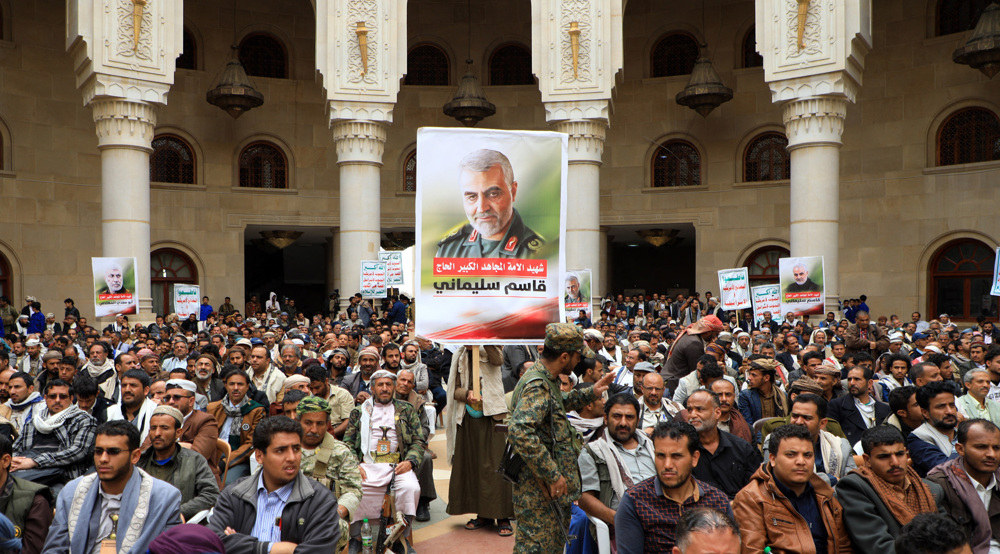
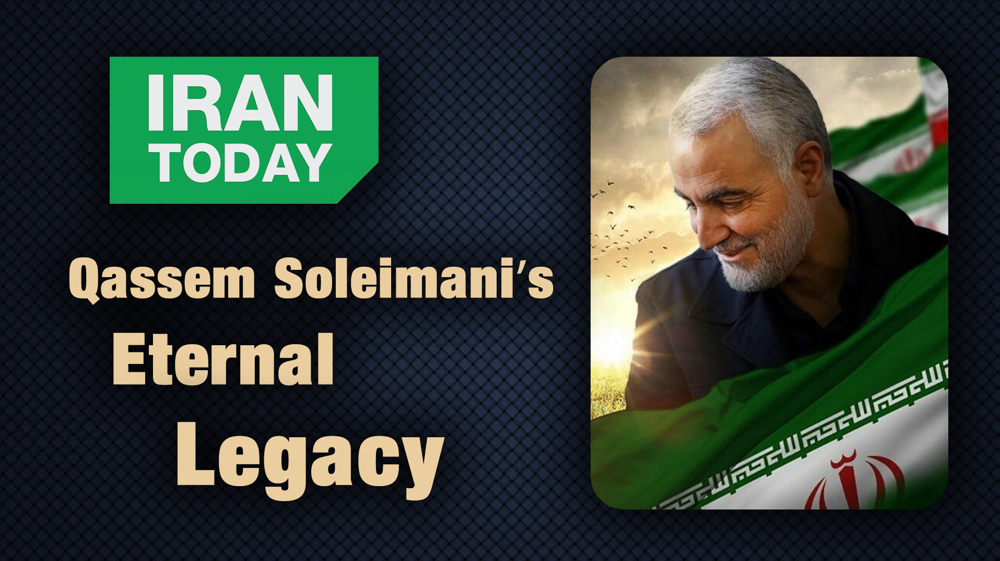
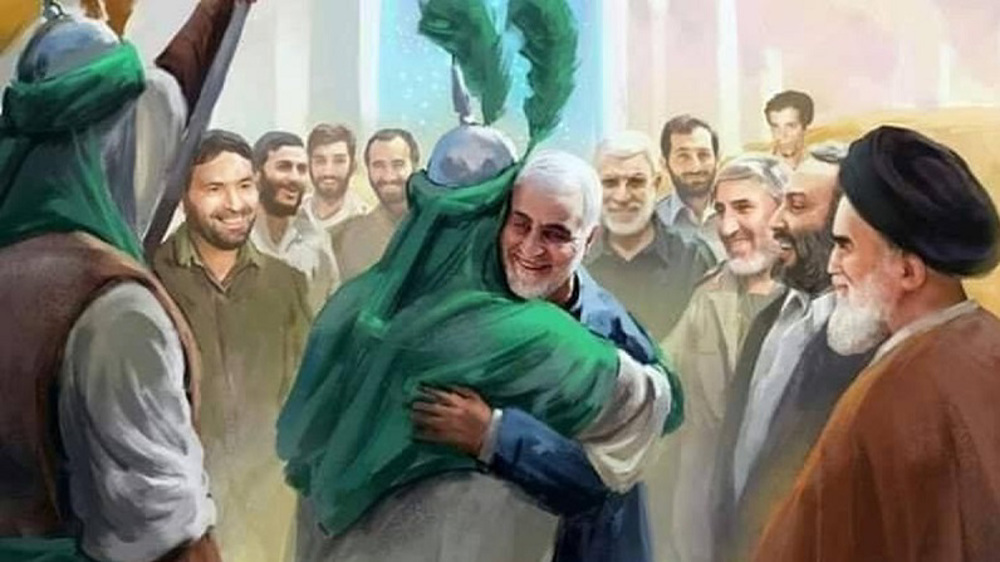
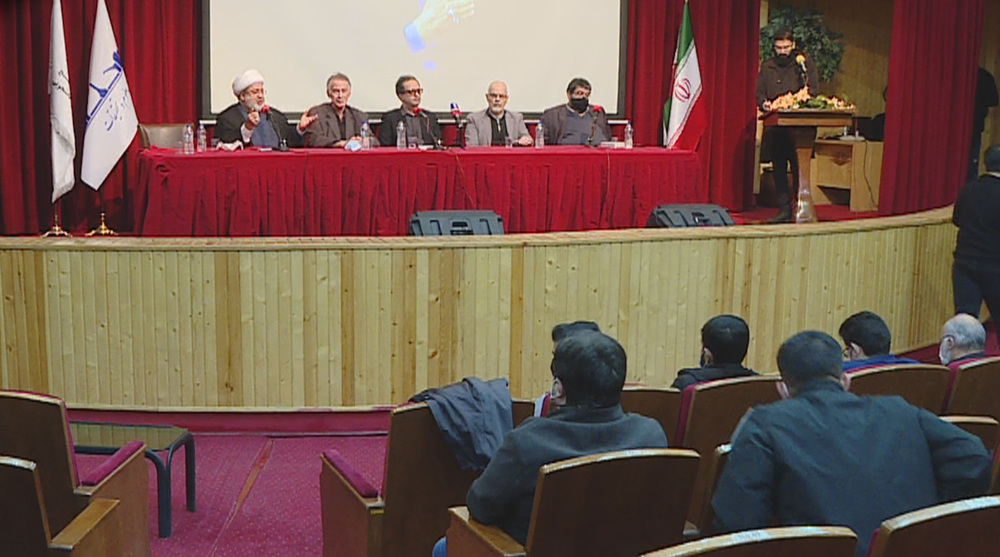
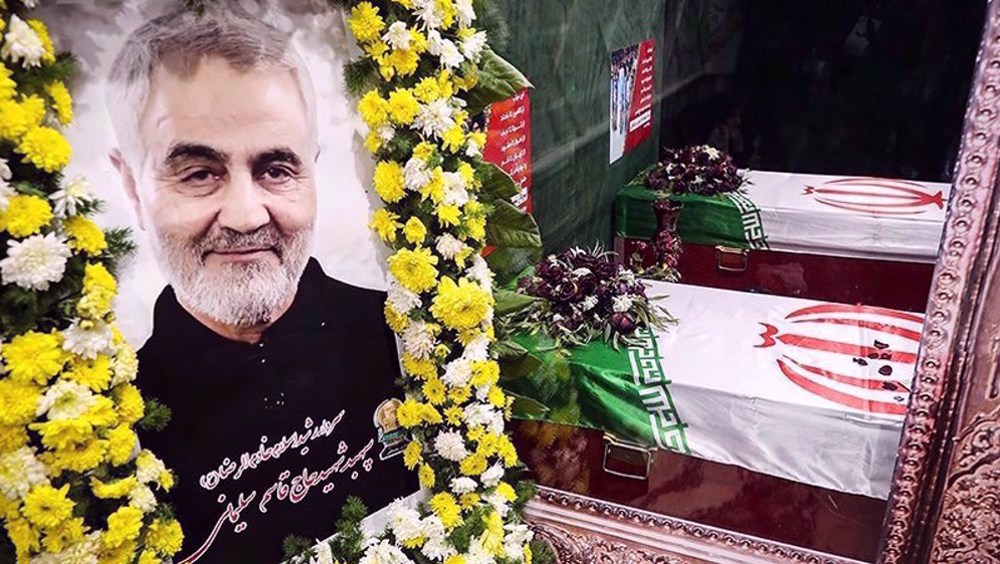
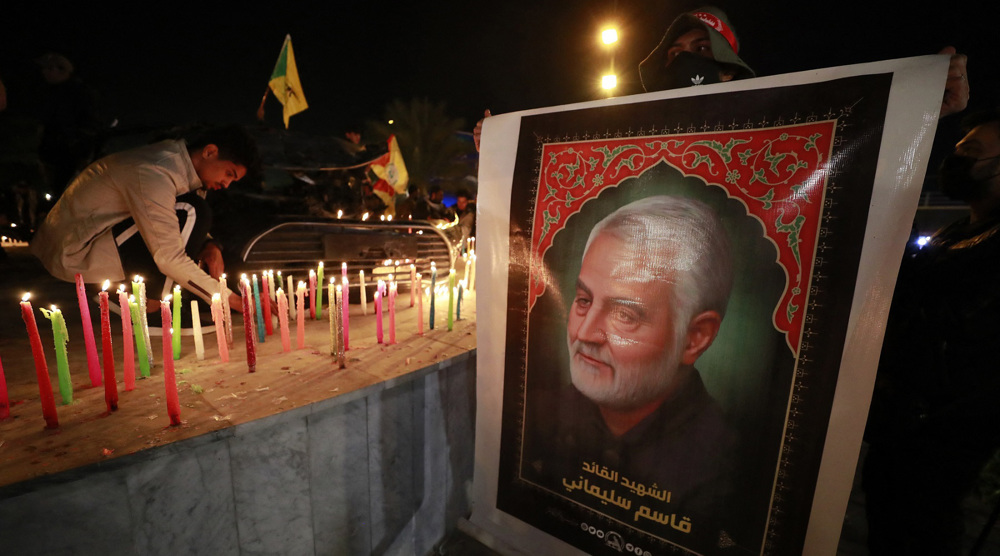
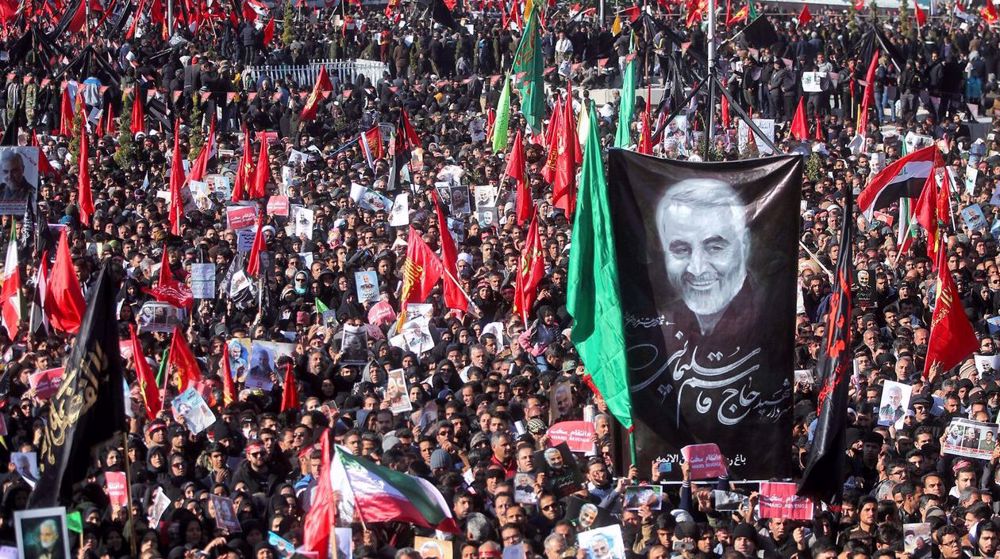

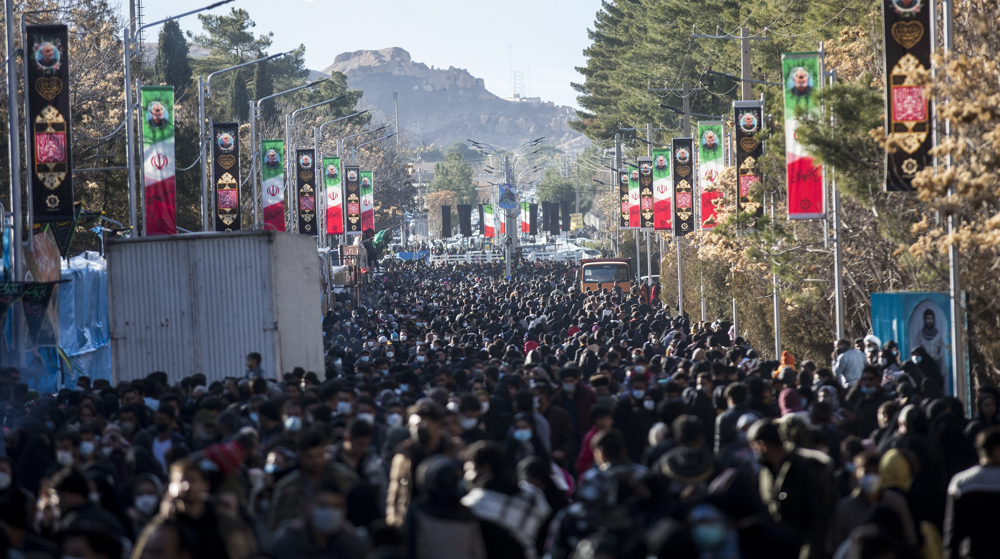
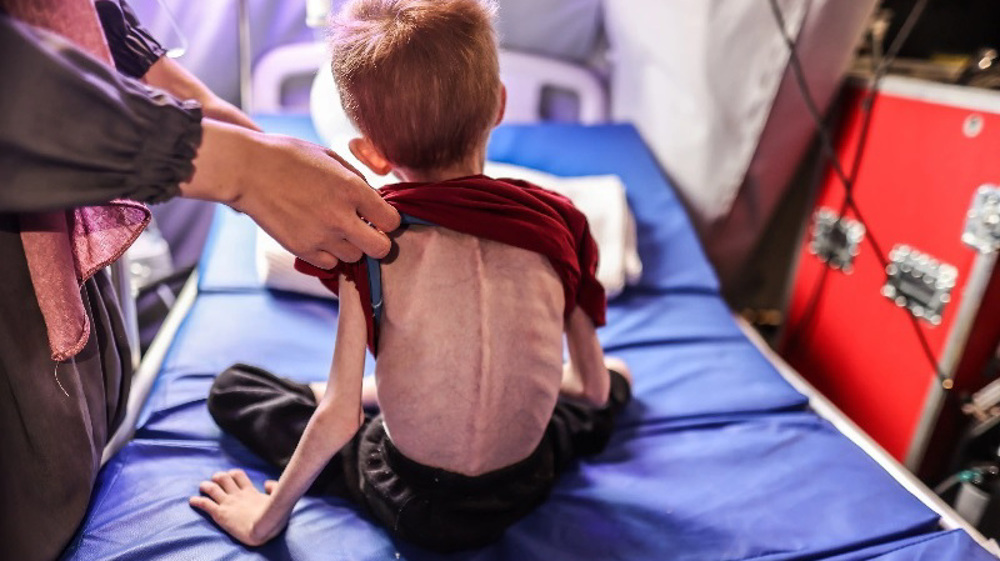
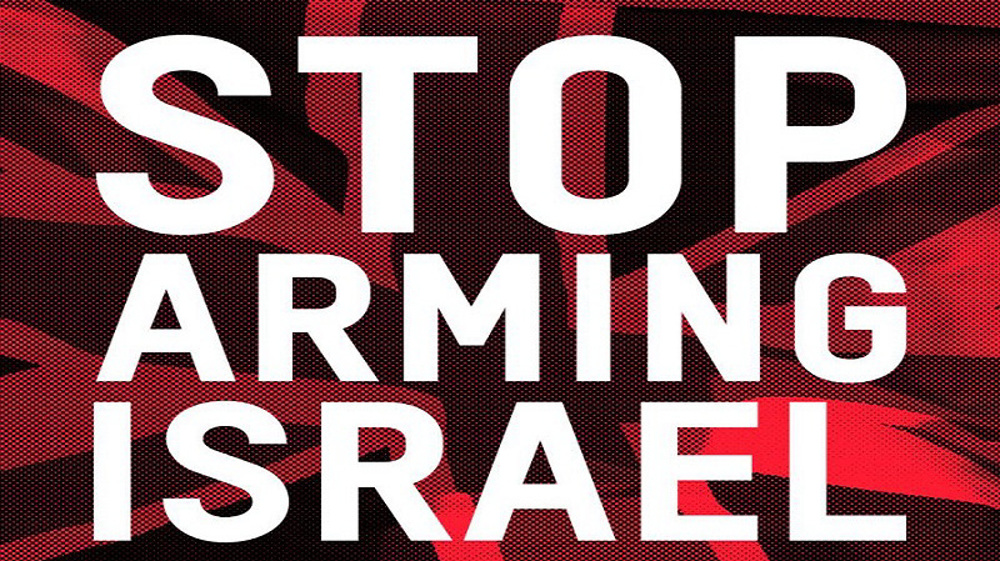
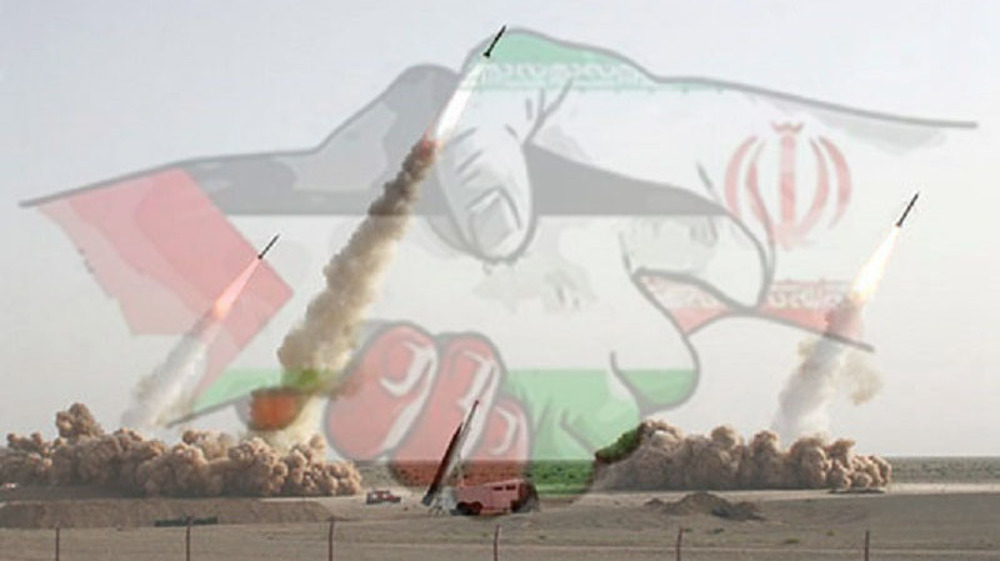




 This makes it easy to access the Press TV website
This makes it easy to access the Press TV website